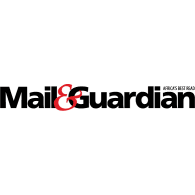Cars, both yours and someone else’s, can be dented and written off in crashes or stolen. People get injured or get sick and require medical care. To replace what you have lost will cost money. Insurance is money you need when an event occurs that you may not have at the time of the event.
That’s where insurance comes in. Insurance is a way of safeguarding for the worst-case scenarios. By paying an insurance company or other financial institution smaller monthly instalments, if or when you get some bad luck, you will be covered (either fully or partially) by your insurance.
Depending on your insurance cover – if you get sick, your car gets dented by a taxi, or your house gets broken into – you should be OK.
By not taking out insurance, you are taking a gamble that everything will be OK. You could very well be right. Sometimes everything is OK. But life is not always OK and things go wrong. Being without insurance can cost you a lot more money. By taking out insurance, you are transferring the risk of loss to an insurer and paying a premium to have that risk insured
TransUnion: "For years, the South African insurance industry has been laser-focused on customer-centricity, often adopting new technologies and distribution channels before the rest of the world. Like the banking industry, insurance providers are at the forefront of digital transformation and data analysis.
So why is it that around 70% of cars in SA are uninsured? Why do fewer than 20% of South Africans have a medical aid?"

Types of Dishonesty:
- Non-disclosure: Failing to disclose relevant information.
- Misrepresentation: Providing false or misleading information.
- Concealment: Hiding relevant information.
Consequences of Dishonesty:
1. Policy Cancellation: Insurer may cancel the policy, leaving you without cover.
2. Claim Rejection: Insurer may reject claims related to the misrepresented information.
3. Premium Refund: Insurer may refund premiums, but cancel the policy.
4. Additional Premiums: Insurer may increase premiums to reflect the actual risk.
5. Loss of No-Claims Bonus: You may forfeit your no-claims bonus.
6. Blacklisting: Insurer may share information with other insurers, affecting future applications.
7. Financial Loss: You may be liable for losses or damages incurred.
8. Legal Action: Insurer may take legal action against you for fraud or misrepresentation.
Examples of Dishonesty:
- Failing to disclose previous claims or accidents.
- Misstating vehicle usage or annual mileage.
- Concealing pre-existing medical conditions.
- Providing false information about business operations.
- Understating property value or contents.
Getting the World to Fall in Love with Insurance
Getting the World to Fall in Love with Insurance
This isn’t exactly new. Back when fire insurance first started, insurance providers had their own fire brigades that would watch a building burn if they arrived and found it wasn’t insured. The industry has come a long way since then, but the perception that insurers are ‘out to get you’ remains.
How many people complain of exorbitant policy charges or wholeheartedly believe that insurance companies will find any excuse to reject a claim?
Read the TransUnion article HERE

Two-pot system: Immediate benefits must be weighed up against long-term security
As of 1 September, South Africa embarked on a significant shift in retirement planning with the introduction of the two-pot retirement system. This new structure allows retirement fund members to access a portion of their savings without the drastic step of resigning from their jobs. On the surface, this change offers flexibility and immediate financial relief for many. But beneath the surface lies a complex web of tax implications and potential long-term consequences that deserve a closer examination.
Read the Mail & Guardian article HERE
